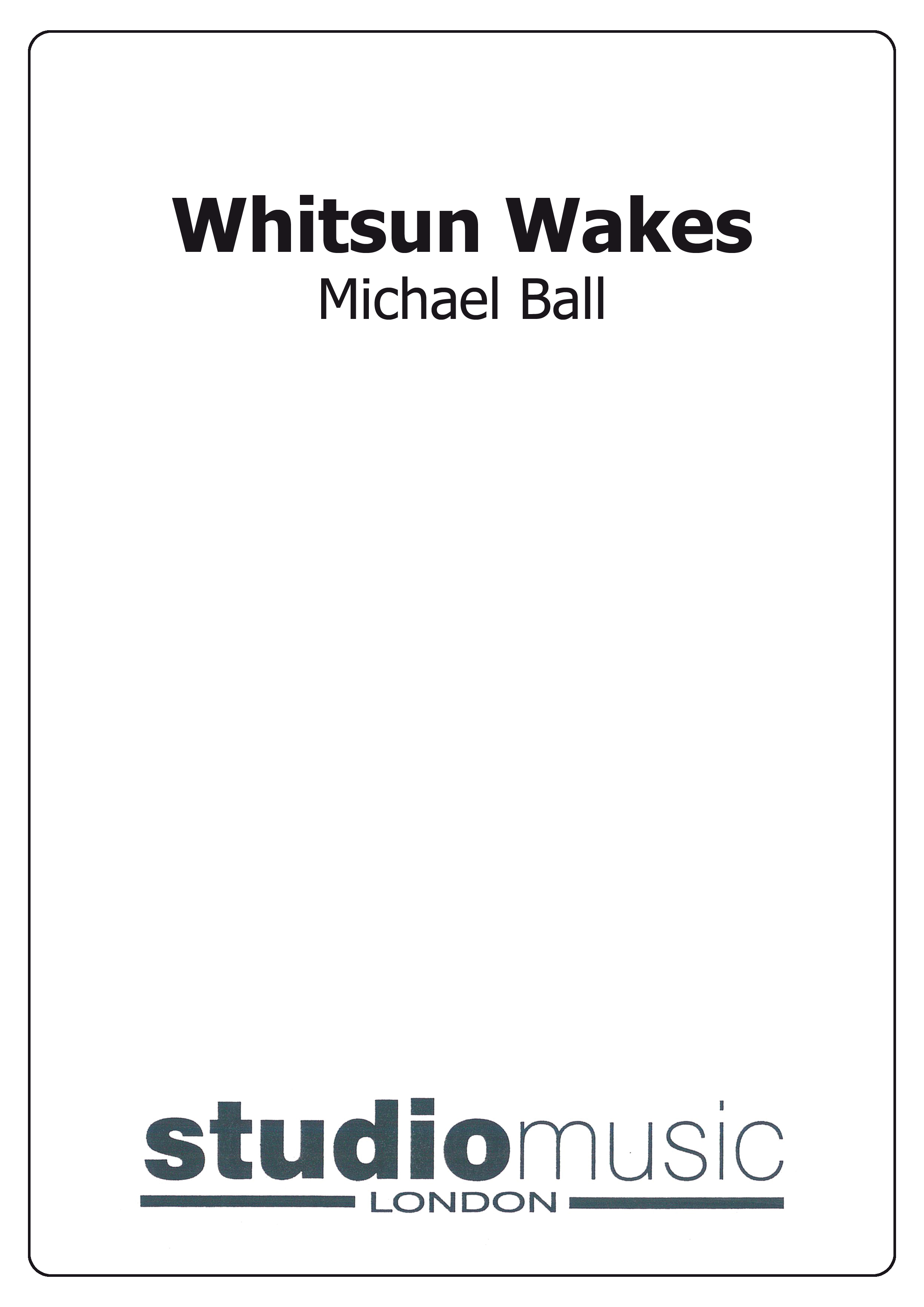Results
-
 £44.95
£44.95Whitsun Wakes (Score Only)
Whitsun Wakes was commissioned by the BBC and first performed by Black Dyke Band, conducted by James Watson, in Manchester's Bridgewater Hall on 26th May, 1997 as part of the BBC's 'Music Live' Festival. It was subsequently selected as a test piece for the British Open Championship which was scheduled to be held on 6th September 1997 at Birmingham's Symphony Hall. Unfortunately this was the day of the funeral of Diana, Princess of Wales and so the British Open was postponed until 17th January, 1998. However the greatest irony is the fact that although this piece takes its inspiration from the Manchester area it was destined to be played at the first British Open Championship to take place outside Manchester.
Estimated dispatch 7-14 working days
-
£38.50
Elan - Harper, P
Commissioned by the British Federation of Brass Bands and first performed at the Symphony Hall, Birmingham, as part of the European Brass Band Championship Gala Concert and played by the National Youth Brass Band of Great Britain.2nd section +
In Stock: Estimated dispatch 1-3 working days
-
£40.00
Lionheart - Harper, P
Lionheart was commissioned by the British Federation of Brass Bands for the 2007 European Brass Band Championships held at the Symphony Hall, Birmingham, and first performed at the Gala Concert by the European Youth Brass Band. It is a triumphant concert opener of about four minutes duration playable by second, first and championship bands.2nd section +
In Stock: Estimated dispatch 1-3 working days
-
 £27.08
£27.08Two-gether (Four Duets on Hymns & Spirituals - Soloists in C Bass Clef w/Piano)
This collection of four duets for C instrument in bass clef with piano accompaniment beautifully blends the timeless appeal of hymns and spirituals with engaging, equal-part musical interplay. Expertly arranged by Kenneth Downie, they are designed to be fun to play and listen to. The book features two pieces in an upbeat, lively style and two in a more reflective, meditative mood. These duets are ideal for concert or contest performances, church services, or simply to enjoy the shared joy of making music together. To view a demonstration video featuring David Koch containing excerpts from all of the arrangements please visit www.youtube.com/watch?v=PCvipNJAH00 Featured tunes: He Hideth My Soul Riverside Silver Trumpets The Old Rugged Cross All the arrangements come with high-quality MP3 backing tracks, recorded using the sounds of the BBC Symphony Orchestra's piano. Included in this download: Soloist Book in C (Bass Clef) Piano Accompaniment Book MP3 Backing Tracks This book is also available for soloists in Bb treble clef here. Sheet music available from: (UK) www.durhammusic.co.uk (USA) www.cimarronmusic.com
In Stock: Estimated dispatch 1-3 working days
-
 £27.08
£27.08Two-gether (Four Duets on Hymns & Spiritual for Soloists in Bb) Kenneth Downie
This collection of four duets for Bb instrument with piano accompaniment beautifully blends the timeless appeal of hymns and spirituals with engaging, equal-part musical interplay. Expertly arranged by Kenneth Downie, they are designed to be fun to play and listen to. The book features two pieces in an upbeat, lively style and two in a more reflective, meditative mood. These duets are ideal for concert or contest performances, church services, or simply to enjoy the shared joy of making music together. To view a demonstration video featuring David Koch containing excerpts from all of the arrangements please visit www.youtube.com/watch?v=PCvipNJAH00 Featured tunes: He Hideth My Soul Riverside Silver Trumpets The Old Rugged Cross All the arrangements come with high-quality MP3 backing tracks, recorded using the sounds of the BBC Symphony Orchestra's piano. Included in this download: Soloist Book in Bb Piano Accompaniment Book MP3 Backing Tracks This book is also available for soloists in C bass clef here. Sheet music available from: (UK) www.durhammusic.co.uk (USA) www.cimarronmusic.com
In Stock: Estimated dispatch 1-3 working days
